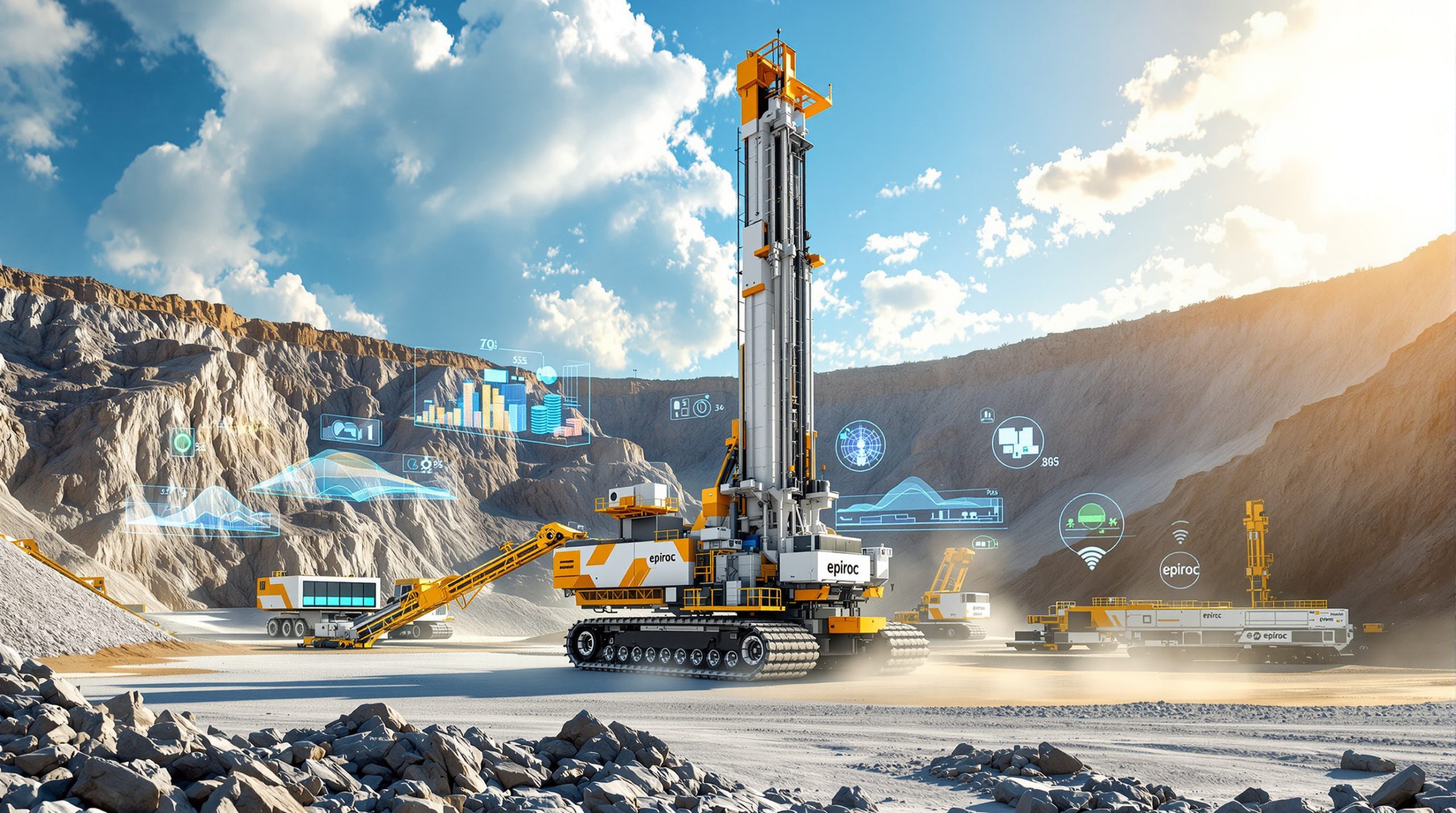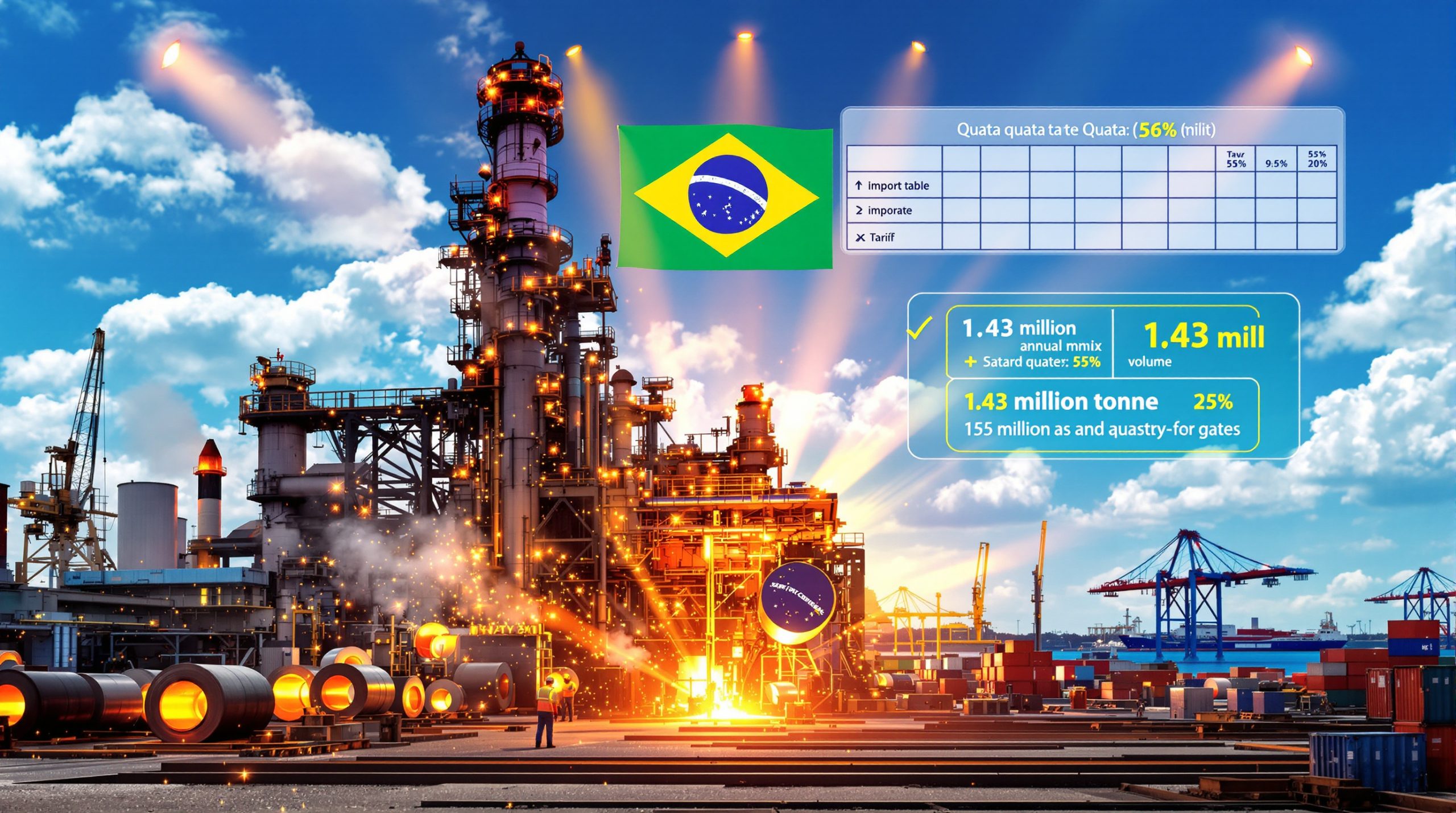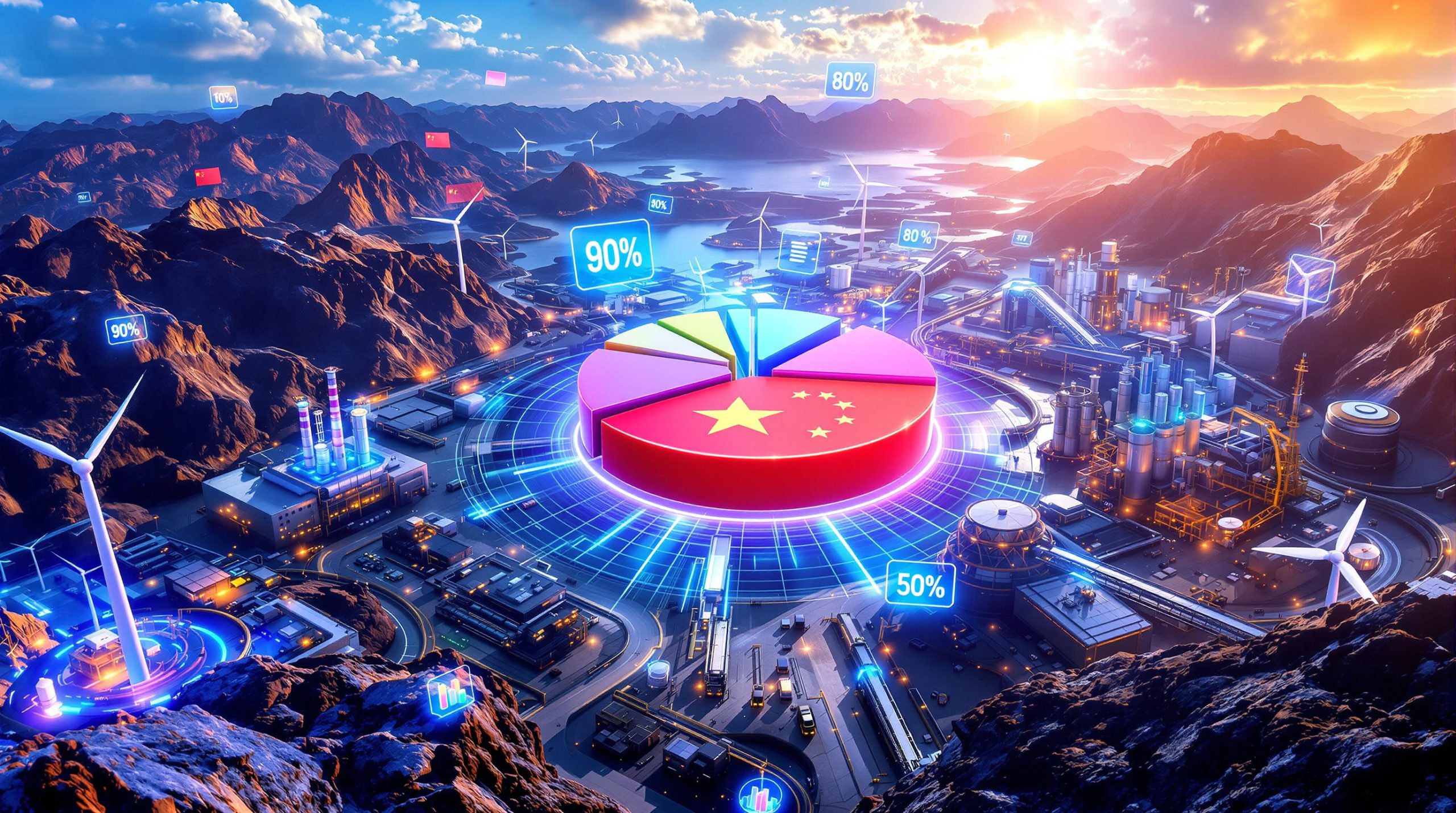Nigeria Mining Week 2025 has emerged as West Africa's premier mining industry gathering, marking a decade of growth and transformation in the region's largest economy. This landmark event, held October 13-15, 2025, represents far more than a typical industry conference—it symbolises Nigeria's strategic pivot toward economic diversification beyond oil dependency. Furthermore, this significant gathering aligns with broader mining industry trends shaping the global sector.
The three-day gathering at Abuja Continental Hotel brought together over 1,200 industry leaders, policymakers, and international investors, all united by a shared vision of unlocking Nigeria's vast mineral potential. With the government's unprecedented ₦1 trillion investment commitment announced during the conference, Nigeria Mining Week 2025 has set the stage for a mining renaissance that could fundamentally reshape the country's economic landscape.
Nigeria's mineral sector currently contributes approximately 0.3% to the nation's GDP, representing one of the world's most underutilised resource bases. The country's geological surveys have identified mineral deposits across more than 500 locations, spanning 44 different solid minerals that remain largely untapped. This presents extraordinary opportunities for both domestic development and international investment partnerships.
The Evolution of Nigeria's Premier Mining Conference
The transformation of Nigeria Mining Week from a modest industry gathering to Africa's flagship mining conference mirrors the broader evolution of Nigeria's mineral sector governance. Over its ten-year journey, the event has become the definitive platform for showcasing Nigeria's mining potential while addressing the challenges that have historically limited sector development.
The conference's growth trajectory reflects increasing global recognition of Nigeria's mineral wealth and improving investment climate. Early editions focused primarily on policy frameworks and regulatory updates, while recent years have emphasised technological innovation, sustainability practices, and international partnership development.
Strategic Partnerships Drive Conference Excellence
The Ministry of Solid Minerals Development leads the event organisation, partnering with the Miners Association of Nigeria and VUKA Group to deliver comprehensive programming that addresses both local challenges and global market opportunities. These partnerships ensure the conference maintains relevance for diverse stakeholder groups, from artisanal miners seeking formalisation pathways to multinational corporations evaluating large-scale investment opportunities.
The collaborative approach extends beyond event organisation to encompass knowledge sharing initiatives, capacity building programmes, and policy advocacy efforts that continue throughout the year. This sustained engagement model has contributed significantly to the conference's growing influence within Nigeria's mining ecosystem and broader West African mineral development community.
Government Commitment Signals New Era for Nigerian Mining
The Nigerian government's ₦1 trillion investment pledge announced at Nigeria Mining Week 2025 represents the most substantial financial commitment to mining sector development in the country's history. This unprecedented allocation signals a fundamental shift in government priorities and resource allocation strategies.
The investment framework encompasses multiple development priorities, including infrastructure modernisation, regulatory streamlining, and capacity building initiatives designed to position Nigeria as a competitive destination for international mining investment. Government officials emphasised that this commitment goes beyond financial resources to include comprehensive policy reforms aimed at creating an enabling environment for sustainable mining development.
Critical Minerals Take Centre Stage
Nigeria's strategic positioning within global critical minerals supply chains emerged as a dominant theme throughout the conference. The country's lithium reserves, located primarily in Nasarawa, Cross River, and Ekiti states, have attracted significant international attention as global demand for battery materials continues expanding rapidly.
Beyond lithium, Nigeria's rare earth element deposits across the Middle Belt region represent potential game-changing opportunities for the global energy transition. These materials are essential for renewable energy technologies, electric vehicle manufacturing, and advanced electronics production, positioning Nigeria as a potential major supplier to growing international markets. The critical minerals transition represents a key driver of this development.
The government's focus on critical minerals reflects recognition that these resources offer higher value propositions compared to traditional bulk commodities. By developing processing capabilities alongside extraction operations, Nigeria aims to capture greater value from its mineral resources while supporting broader industrialisation objectives.
Technology Innovation Transforms Mining Operations
Nigeria Mining Week 2025 showcased cutting-edge technologies that are revolutionising mining operations across Africa. The exhibition floor featured advanced drilling systems, autonomous mining vehicles, and sophisticated environmental monitoring equipment that demonstrate how technology can enhance both operational efficiency and environmental stewardship.
Digital transformation initiatives represent a particular area of focus, with companies demonstrating mine planning software, geological modelling tools, and supply chain management platforms designed for transparent, efficient operations. These technological solutions address longstanding challenges in the Nigerian mining sector, including limited technical expertise and inadequate operational oversight. In addition, AI mining innovations are increasingly being integrated into modern operations.
Day Two Highlights Technical Excellence
The second day of Nigeria Mining Week 2025 featured dynamic panel sessions, technical workshops, and engaging fireside chats that provided platforms for knowledge transfer and collaborative problem-solving. The signing of the KMDC Public-Private Partnership agreement represented a significant milestone in advancing large-scale mining development through structured collaboration between government and private sector partners.
Technical workshops covered specialised topics including advanced exploration techniques, processing technology innovations for local value addition, and environmental management best practices. These sessions provided practical knowledge transfer opportunities for local mining professionals while demonstrating international best practices adapted to Nigerian operating conditions.
The bustling exhibition area welcomed enthusiastic visitors throughout the event, showcasing the latest technologies, services, and investment prospects within Nigeria's expanding mining ecosystem. International technology providers used the platform to demonstrate solutions specifically designed for African operating environments, emphasising durability, efficiency, and maintenance requirements suitable for remote mining locations. Moreover, attendees could explore opportunities at the Nigeria Mining Week official programme.
Infrastructure Development Imperatives
Mining sector growth requires substantial infrastructure investment across multiple categories, from transportation networks to power generation systems. Conference discussions emphasised that successful mining development depends on coordinated infrastructure planning that supports both individual projects and broader sector development objectives.
Rail connections represent a particularly critical infrastructure need, with potential cost reductions of up to 40% for mining operations once adequate rail networks connect mining regions to export facilities. Port facility upgrades could double Nigeria's mineral export capacity while reducing logistics costs that currently limit the competitiveness of Nigerian mineral exports.
Power generation remains a fundamental constraint for mining operations, with reliable electricity supply essential for 24/7 mining activities. Investment in distributed power generation solutions, including renewable energy systems, could address this challenge while supporting broader sustainability objectives within the mining sector.
Digital connectivity infrastructure enables real-time monitoring capabilities that enhance both operational efficiency and regulatory compliance. Modern mining operations increasingly depend on continuous data collection and analysis, making reliable communications infrastructure essential for competitive operations.
Sustainability and Community Development Focus
Environmental stewardship initiatives featured prominently throughout Nigeria Mining Week 2025, reflecting growing recognition that sustainable practices are essential for long-term sector success. The conference emphasised that environmental protection and mining development are complementary rather than competing objectives when properly managed.
Biodiversity conservation protocols for mining areas represent an emerging area of focus, with companies demonstrating approaches that minimise ecological disruption while enabling resource extraction. Water resource management systems designed to prevent contamination showcase how advanced technology can address environmental concerns that have historically limited mining development.
Community Engagement Drives Inclusive Growth
Local content requirements and community benefit-sharing mechanisms emerged as key themes during conference discussions about sustainable mining development. These approaches ensure that mining activities generate tangible benefits for local communities while building social licence for long-term operations.
Skills transfer programmes represent a particularly important component of inclusive mining development, building indigenous expertise while creating employment opportunities for local populations. Women's participation initiatives in mining value chains address gender inclusivity while expanding the sector's human resource base.
Community development funds generated from mining revenues provide mechanisms for directing mining proceeds toward local infrastructure, education, and healthcare improvements. These approaches help ensure that mining development contributes to broader social and economic progress rather than creating isolated industrial enclaves.
Investment Opportunities and Market Dynamics
Nigeria Mining Week 2025 showcased numerous high-priority mineral projects across different commodity categories, each presenting distinct investment opportunities and development timelines. Lithium projects attracted particular attention from international investors seeking to secure supply chain positions for battery material markets.
Gold mining expansion opportunities remain attractive for both large-scale and small-scale operators, with current annual production of approximately 15 tonnes representing significant potential for growth through proper investment and technology adoption. The formalisation of artisanal mining operations affecting over 200,000 small-scale miners presents both challenges and opportunities for sector development. Consequently, understanding gold investment strategies becomes increasingly important for potential investors.
International Investment Pathways
Multiple investment pathways exist for international companies seeking exposure to Nigeria's mining sector growth. Greenfield exploration projects in underexplored regions offer high-risk, high-reward opportunities for companies with strong technical capabilities and patient capital approaches.
Joint ventures with local mining companies provide risk-sharing arrangements while leveraging local knowledge and relationships essential for successful operations. Technology partnerships enable companies to contribute specialised expertise while benefiting from sector growth without direct operational exposure.
Government incentives including tax holidays and duty exemptions improve project economics for qualifying investments, while development finance from international institutions provides additional funding mechanisms for large-scale projects. Risk mitigation instruments address political and operational risks that concern international investors evaluating Nigerian opportunities.
Economic Diversification and Strategic Vision
Nigeria Mining Week 2025 positioned the mining sector as a cornerstone of national economic transformation, with ambitious targets including increasing GDP contribution to 5% by 2030 from the current 0.5%. This transformation would generate an estimated 2 million direct and indirect employment opportunities while substantially diversifying export revenue sources.
Regional leadership positioning represents another strategic objective, with Nigeria aiming to become West Africa's primary hub for mining investment and expertise. This vision encompasses technology transfer capabilities, supply chain integration with global manufacturing networks, and sustainable development models applicable across resource-rich African nations.
Long-term Market Implications
The conference established Nigeria's roadmap for becoming a major global mining destination while emphasising responsible resource development that benefits all stakeholders. This approach recognises that mining sector success depends on balancing economic objectives with environmental protection and social development goals.
Industrial development through downstream processing represents a key component of Nigeria's mining strategy, enabling the country to capture greater value from its mineral resources while supporting broader manufacturing sector growth. This value-added processing approach could position Nigeria as a regional processing hub for multiple mineral commodities.
The integration of mining development with global energy transition requirements ensures that Nigeria's mineral sector growth contributes to broader sustainability objectives rather than conflicting with them. This alignment enhances the sector's long-term viability while addressing international concerns about responsible resource development. Additional insights about the conference can be found through the Nigeria Mining Week official website.
Disclaimer: This article contains forward-looking statements regarding Nigeria's mining sector development, investment projections, and economic targets. These projections are based on current government commitments and industry assessments but are subject to various economic, political, and operational factors that could affect actual outcomes. Investment decisions should be based on comprehensive due diligence and professional advice.
Looking to Capitalise on Emerging African Mining Opportunities?
Discovery Alert's proprietary Discovery IQ model delivers real-time alerts on significant mineral discoveries across the ASX, instantly empowering subscribers to identify actionable investment opportunities in companies with African mining exposure ahead of the broader market. Begin your 30-day free trial today and gain the market-leading advantage you need to position yourself ahead of developing trends in the global mining sector.




